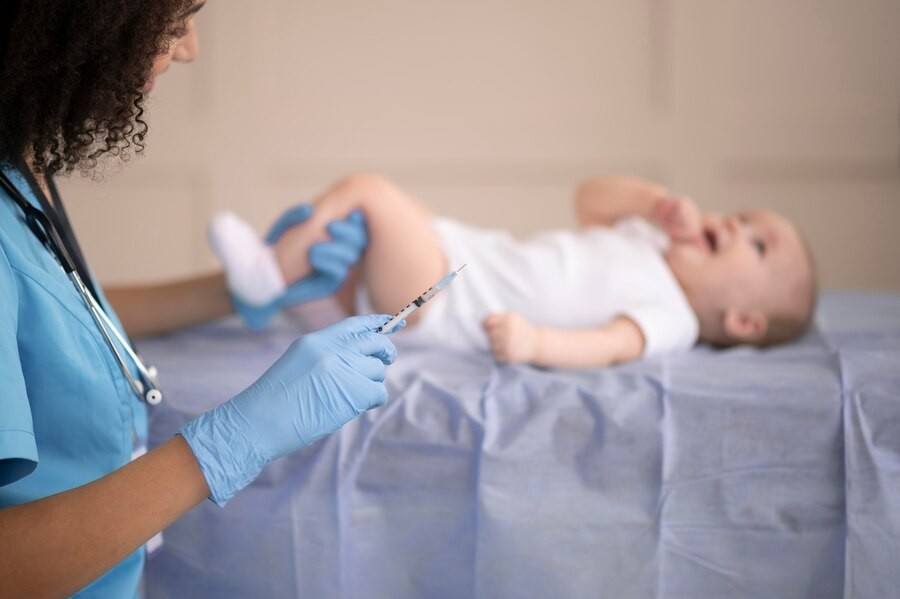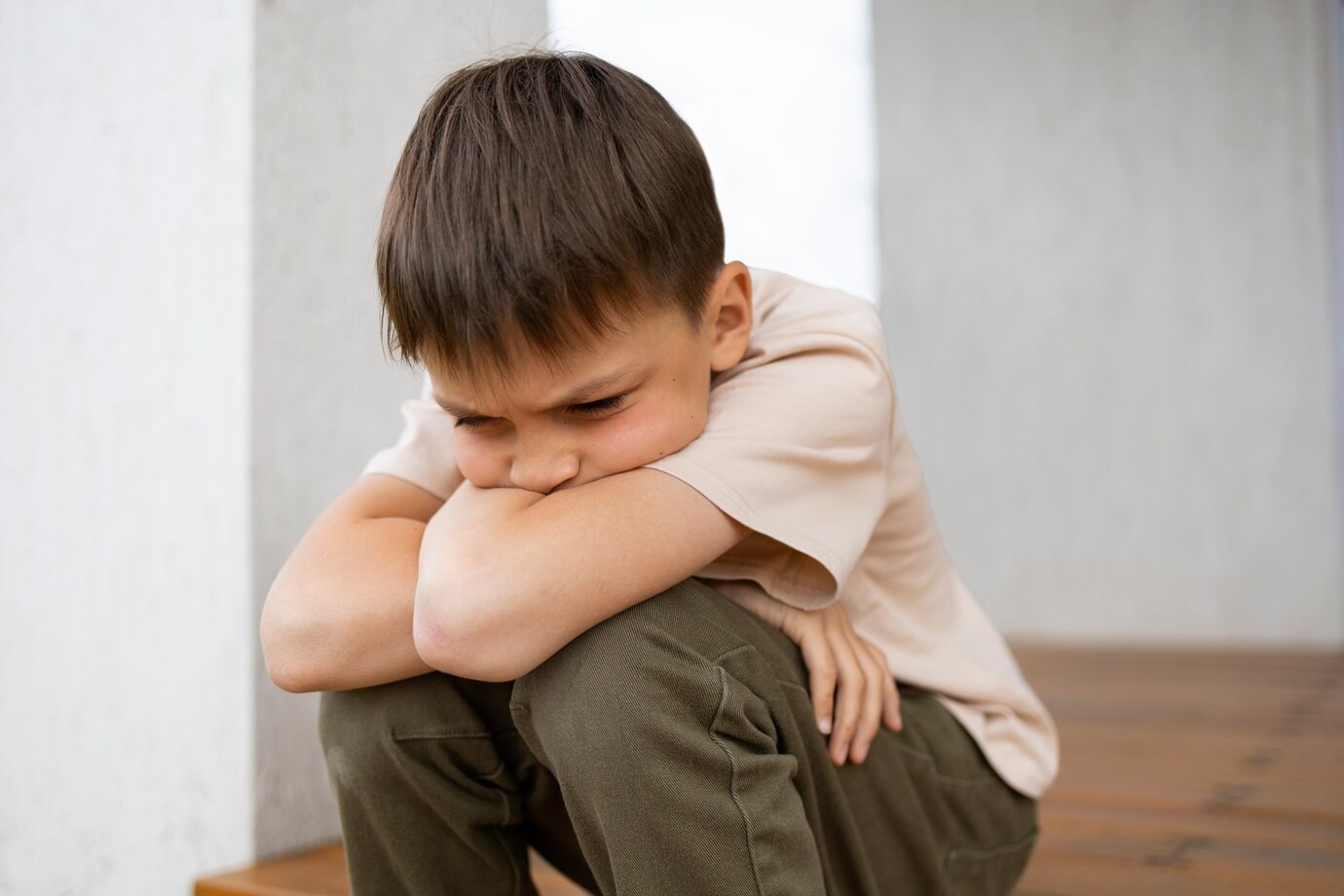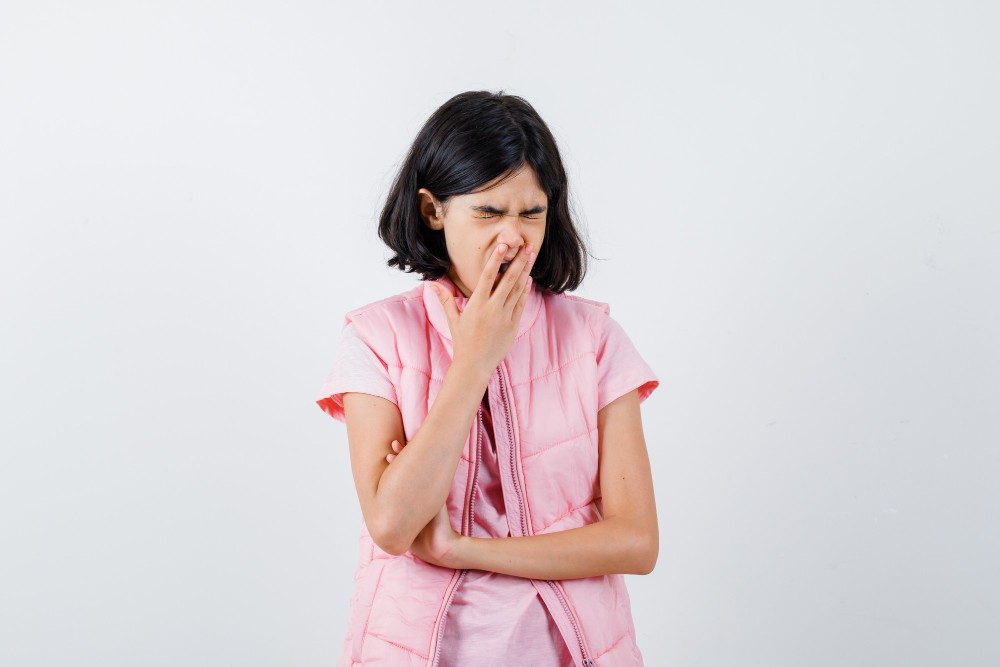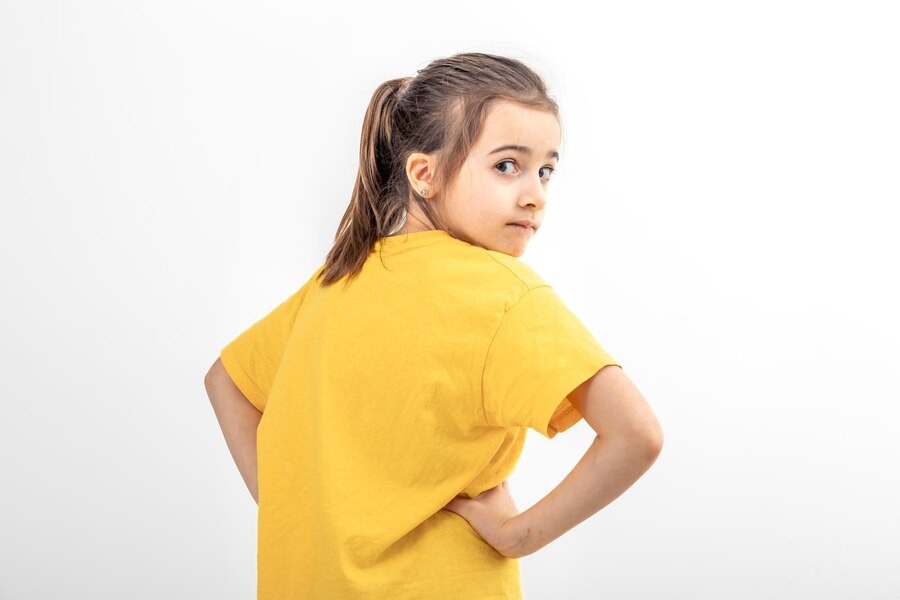Menurut data WHO pada tahun 2021, pneumonia menjadi penyebab 740.180 kematian pada anak di bawah usia 5 tahun. Penyakit ini dapat disebabkan oleh infeksi bakteri, virus, maupun jamur. Bakteri Streptococcus pneumoniae menjadi salah satu penyebab tersering pneumonia.
Untuk mengurangi angka infeksi dan kematian akibat pneumonia, vaksin PCV dianjurkan sebagai tindakan pencegahan yang efektif. Seberapa efektifkah vaksin PCV dalam mencegah pneumonia pada anak?
Apa itu Vaksin PCV?
Vaksin PCV (Pneumococcal Conjugate Vaccine) adalah vaksin yang dirancang untuk melindungi tubuh dari infeksi bakteri Streptococcus pneumoniae (pneumokokus). Bakteri ini bisa menyebabkan berbagai penyakit serius, termasuk pneumonia, meningitis, dan sepsis.
Vaksin PCV bekerja dengan merangsang sistem kekebalan tubuh agar mengenali dan melawan infeksi pneumokokus jika tubuh terpapar bakteri tersebut di masa depan.
Terdapat beberapa jenis vaksin PCV yang digunakan, antara lain PCV10, PCV13, PCV15, PCV20, dan PCV21. PCV10 mampu melindungi dari 10 tipe bakteri Streptococcus pneumoniae, sementara PCV13 melindungi terhadap 13 tipe bakteri.
Jenis vaksin yang lebih baru, seperti PCV15, PCV20, dan PCV21, memberikan perlindungan terhadap lebih banyak serotipe bakteri, meskipun data tentang efektivitasnya masih terus berkembang.
Di Indonesia, saat ini vaksin yang digunakan adalah PCV10 dan PCV13, yang telah terbukti efektif dalam melindungi dari infeksi pneumokokus.
Baca Juga: 7 Jenis Pneumonia, Apa Perbedaannya?
Efektivitas Vaksin PCV dalam Mencegah Pneumonia pada Anak
Vaksin PCV telah terbukti sangat efektif dalam mencegah infeksi pneumonia pada anak. Berbagai studi di seluruh dunia menunjukkan bahwa vaksin ini mampu menurunkan angka kejadian pneumonia pada anak-anak secara signifikan.
Menurut WHO, vaksin PCV dapat mengurangi angka kasus pneumonia hingga 30-35% pada anak-anak yang telah divaksinasi, terutama pada kelompok usia di bawah 5 tahun. Selain itu, penelitian di beberapa negara menunjukkan bahwa vaksinasi PCV juga efektif dalam mengurangi kematian anak akibat pneumonia.
Vaksin PCV telah melewati berbagai uji klinis dan dinyatakan aman untuk anak-anak. Efek samping yang muncul umumnya ringan dan bersifat sementara, seperti kemerahan, demam ringan, rewel, atau pembengkakan di area bekas suntikan. Efek samping ini biasanya akan hilang dalam 1-2 hari.
Baca Juga: Vaksin PCV: Manfaat, Dosis, Jenis Vaksin dan Efek Samping
Pentingnya Vaksinasi PCV pada Anak
Di banyak negara, termasuk Indonesia, pneumonia menjadi penyebab kematian utama pada anak-anak di bawah usia 5 tahun. Oleh karena itu, pemberian vaksin PCV sangat penting sebagai langkah pencegahan utama.
WHO dan UNICEF mendukung dan merekomendasikan vaksin PCV sebagai bagian dari imunisasi rutin anak di seluruh dunia. Mereka menganggap vaksinasi ini sebagai langkah preventif yang kritis untuk menekan angka kematian anak akibat pneumonia, terutama di negara-negara dengan tingkat kematian bayi yang masih tinggi.
Dengan semakin banyak anak yang mendapat vaksinasi, penyebaran bakteri penyebab pneumonia di masyarakat akan berkurang secara signifikan. Artinya, tidak hanya anak-anak yang menerima vaksin saja yang terlindungi, tetapi juga memberikan perlindungan tidak langsung bagi mereka yang tidak dapat divaksinasi, seperti anak dengan kondisi medis tertentu atau orang dewasa yang rentan.
Di Indonesia, jadwal pemberian vaksin PCV direkomendasikan pada usia 2, 4, dan 6 bulan, dengan dosis booster diberikan pada usia 12-15 bulan.
Dosis awal vaksin membantu tubuh bayi mengenali bakteri pneumokokus dan membangun respons imun yang baik. Sedangkan, dosis booster berfungsi untuk memperkuat kekebalan tubuh anak dan memberikan perlindungan ekstra terhadap infeksi pneumokokus.
Sangat penting untuk selalu mengikuti jadwal vaksinasi yang disarankan. Apabila anak Anda melewatkan jadwal tersebut, konsultasikan kembali dengan dokter atau manfaatkan layanan konsultasi kesehatan pada aplikasi Ai Care dengan mengunduhnya melalui App Store atau Play Store.
Mau tahu informasi seputar kehamilan, menyusui, kesehatan wanita dan anak-anak? Cek di sini, ya!
- dr Nadia Opmalina
WHO (2022). Pneumonia in children. Available from: https://www.who.int/news-room/fact-sheets/detail/pneumonia
Jie Tian, et all (2023). Effectiveness of 13-valent pneumococcal conjugate vaccine on all-cause pneumonia in children under 5 years in Shanghai, China: An observational study. Available from: https://pmc.ncbi.nlm.nih.gov/articles/PMC10549215/
Joseph A. Lewnard, et all (2020). Effectiveness of Pneumococcal Conjugate Vaccines Against Community-acquired Alveolar Pneumonia Attributable to Vaccine-serotype Streptococcus pneumoniae Among Children. Available from: https://pmc.ncbi.nlm.nih.gov/articles/PMC8492210/
Kids Health (2024). Your Child's Vaccines: Pneumococcal Vaccines (PCV, PPSV). Available from: https://kidshealth.org/en/parents/pneumococcal-vaccine.html
CDC (2024). Pneumococcal Vaccination. Available from: https://www.cdc.gov/pneumococcal/vaccines/index.html
P2P Kemenkes (2024). Pneumonia Menjadi Ancaman Kesakitan dan Kematian di Dunia. Available from: https://p2p.kemkes.go.id/pneumonia-menjadi-ancaman-kesakitan-dan-kematian-di-dunia/
Kemenkes (2024). Pneumonia Terus Ancam Anak-anak. Available from: https://kemkes.go.id/id/pneumonia-terus-ancam-anak-anak
CDC (2024). Types of Pneumococcal Vaccines. Available from: https://www.cdc.gov/pneumococcal/vaccines/types.html












